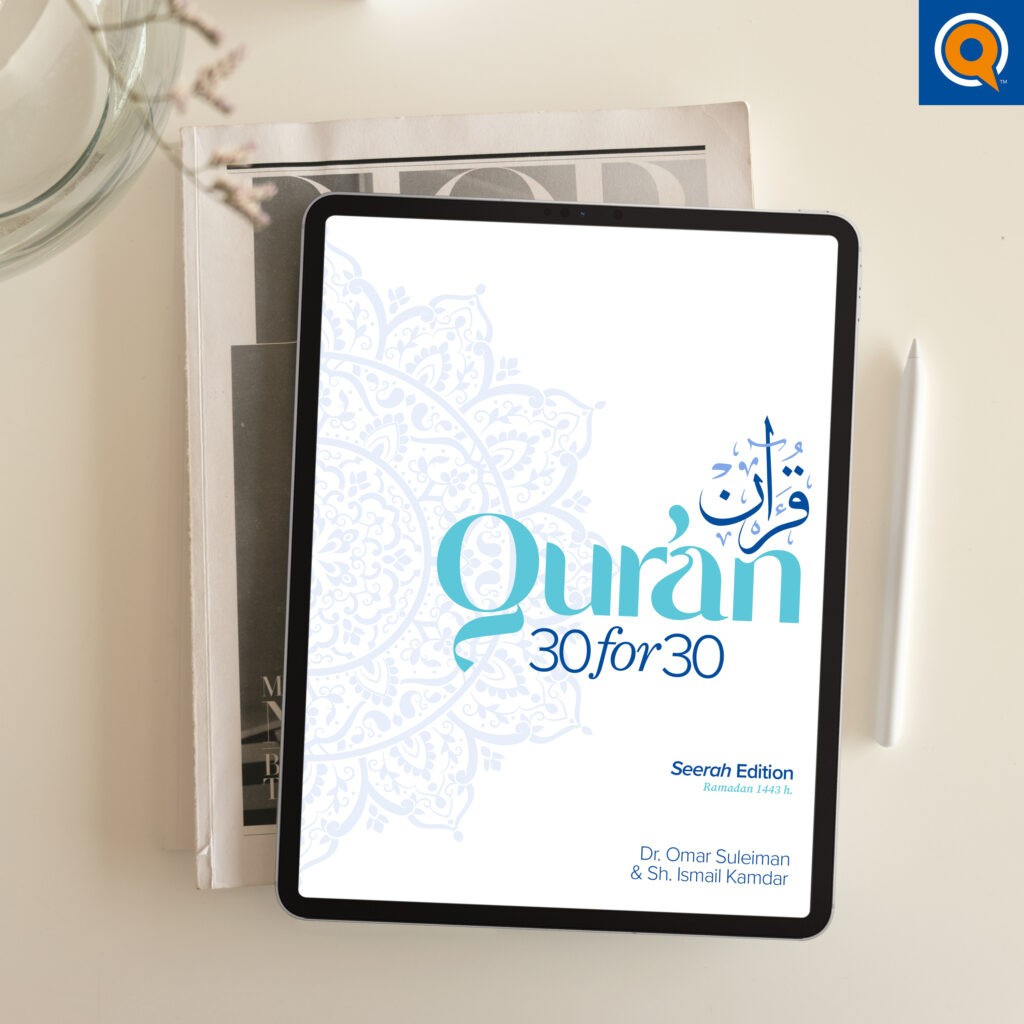Sūrah al-Masad, also known as Sūrah al-Lahab, is an early Makkan Sūrah focused on the topic of the fate in the Afterlife of Abū Lahab and his wife. This Sūrah is very short and powerful and was revealed early in Islamic History after an incident in which Abū Lahab insulted the Prophet (peace be upon him).
The Reason for Revelation
The reason for the revelation of this Sūrah has been preserved in several authentic narrations. Because of this, we know exactly when and why this Sūrah was revealed. Here is one of those narrations.
Ibn ʿAbbās narrated that when the verse ‘And warn your tribe of near kindred.’ (26.214) was revealed, Allah’s Messenger (peace be upon him) went out, and when he had ascended As-Safā mountain, he shouted, “O Sabāhāh!” The people said, “Who is that?” Then they gathered around him, whereupon he said, “Do you see? If I inform you that cavalrymen are proceeding up the side of this mountain, will you believe me?” They said, “We have never heard you telling a lie.” Then he said, “I am a plain warner to you of a coming severe punishment.” Abū Lahab said, “May you perish! You gathered us only for this reason?” Then Abū Lahab went away. So the Sūrah al-Lahab was revealed. (Ṣaḥīḥ al-Bukhārī 65: 4971)
It was the custom of the Makkan people that whenever there was danger, they would climb Mount As-Safā and shout, “O Sabāhāh!” to warn their people about the imminent danger. During the first two years of Islam, the message was propagated privately to individuals. It was not really a secret as people knew the Prophet (peace be upon him) had claimed prophethood and was gaining a few followers, but the message had not been proclaimed in public yet.
Then the verse ‘And warn your tribe of near kindred.’ (26.214) was revealed. When this verse was revealed, the Prophet (peace be upon him) gathered his tribe and called them to Islam in public. This public call irritated Abū Lahab for several reasons. Abū Lahab was the paternal uncle of the Prophet (peace be upon him) and his only paternal uncle who was openly hostile to him.
Abū Lahab was a wealthy businessman, very materialistic and proud, and a staunch follower of paganism. He viewed the call of his nephew as both a nuisance and an embarrassment to his family name. He was also irritated to have been dragged away from his business to hear the message of Islam. It was in this fit of arrogant anger that he blurted the line that would seal his fate, “May you perish! You gathered us only for this reason?”
The Fate of Abū Lahab
Sūrah Lahab was revealed declaring that it was instead Abū Lahab that would perish and face eternal damnation in Hellfire. These five powerful verses were revealed condemning both him and his wife to the Hellfire. The reason why his fire was included is that she too assisted in trying to stop the spread of Islam, and supported her husband in his crusade against Islam.
“Condemned are the hands of Abū Lahab, and he is condemned. His wealth did not avail him, nor did what he acquired. He will burn in a Flaming Fire. And his wife, the firewood carrier. Around her neck is a rope of thorns” (111:1-5)
There are several remarkable aspects to this short powerful Sūrah. Notice that the Sūrah addresses the fate of Abū Lahab in the past tense as if it was already done and over. Even though Abū Lahab was still alive, and would live for another decade, the Quran declared that his fate was already sealed and he would end up in the Hellfire.
Some scholars read into this a type of miracle. The Quran was prophesizing that Abū Lahab would die upon disbelief, even though he could have repented and converted like many others did after it was revealed. The fact that he did not convert is seen as proof that this verse is a true prophecy and the Quran is a miracle.
Allah knows best whether this is the correct understanding of this Sūrah. For me, I see this as a plausible interpretation, but more probable is that Allah addresses this topic in the past tense because He knows everything and time is irrelevant to Allah. Allah knew that Abū Lahab was destined for Hellfire, so He stated it as a matter of fact. Whether this counts as a prophecy or not, Allah knows best.
Dishonorable Mention
Another interesting fact about this Sūrah is that it is the only place in the Quran in which one of the enemies of Islam from the Quraysh is mentioned by name. The Quran rarely mentions the names of any people that lived during the Prophet’s (peace be upon him) lifetime. Most of the verses about his companions or enemies do not contain any names, and we only know whom they are referring to because of the narrations of reasons for revelation.
There is only one companion mentioned by name in the Quran and only one pagan of the Quraysh mentioned by name in the Quran. The companion is Zaid bin Ḥāritha who is mentioned by name in Sūrah Al-Ahzāb. The only enemy mentioned by name is Abū Lahab in this Sūrah. For Zaid, this is a special honor. But for Abū Lahab, this is a humiliating dishonor.
There is an important theological lesson in Abū Lahab being mentioned by name here, related to judgment and Hellfire. The lesson is that we should not say that any individual is definitely in Paradise or Hell unless this is explicitly mentioned in the Quran or Sunnah. While we firmly believe in the salvific exclusivity of Islam, we do not pass judgment on individuals.
It is important that we distinguish between our theology and judgment. Our theology teaches us that believers will enter Paradise, and disbelievers will enter Hellfire. We believe in this firmly, but we do not pass judgment on any individual without clear evidence. At the end of the day, we do not know which Non-Muslim had an excuse with Allah, or which “pious Muslim” was secretly a hypocrite. Because we lack this knowledge, it is best that we remain silent on the fate of any individual that passes away, and we leave their judgment to Allah’s Perfect Justice and Mercy.
In the case of Abū Lahab, we can state clearly that he is from the people of Hellfire. As this is clearly stated in this Sūrah. The same can be said about Pharaoh, Satan, and the leaders of the Quraysh who were killed in Badr. Because in each of these cases, there is clear evidence in the Quran or Sunnah about their fates. Likewise, we can say that certain companions like the Rightly Guided Caliphs and the Prophet’s (peace be upon him) wives are in Paradise, as this too is clearly stated in several narrations.
Those who insult the Prophet (peace be upon him)
A final lesson we can extract from these verses is that Allah is quick to defend the honor of his beloved Prophet (peace be upon him). Those who insult the Prophet (peace be upon him) and try to harm him will face humiliation in both worlds. This was the case of Abū Lahab with the revelation of this Sūrah, and it is the case for any individual who follows in his footsteps until the end of time, besides those who repent.
The story behind the revelation of this Sūrah should serve as a reminder to us all about the rights of the Prophet (peace be upon him). He deserves the highest level of love and respect, and he should only talk about him with the best of manners and etiquette. We should extend this respect to the narrations about his life, and to his Sunnah too. Those who disrespect the Prophet (peace be upon him) may perish as Abū Lahab perished.






